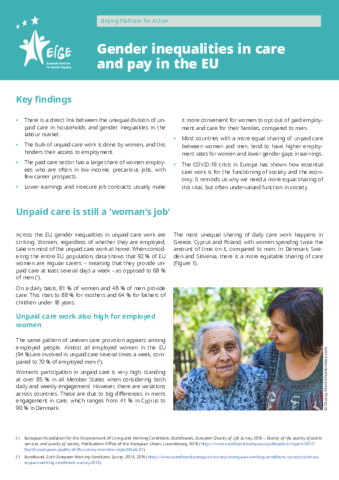There is a direct link between the unequal division of unpaid care in households and gender inequalities in the labour market. The bulk of unpaid care work is done by women, and this hinders their access to employment.
The paid care sector has a large share of women employees who are often in low-income, precarious jobs, with few career prospects. Lower earnings and insecure job contracts usually make it more convenient for women to opt out of paid employment and care for their families, compared to men.
Most countries with a more equal sharing of unpaid care between women and men, tend to have higher employment rates for women and lower gender gaps in earnings.
The COVID-19 crisis in Europe has shown how essential care work is for the functioning of society and the economy. It reminds us why we need a more equal sharing of this vital, but often undervalued function in society.
Further reading
Report: Gender inequalities in care and consequences for the labour market
